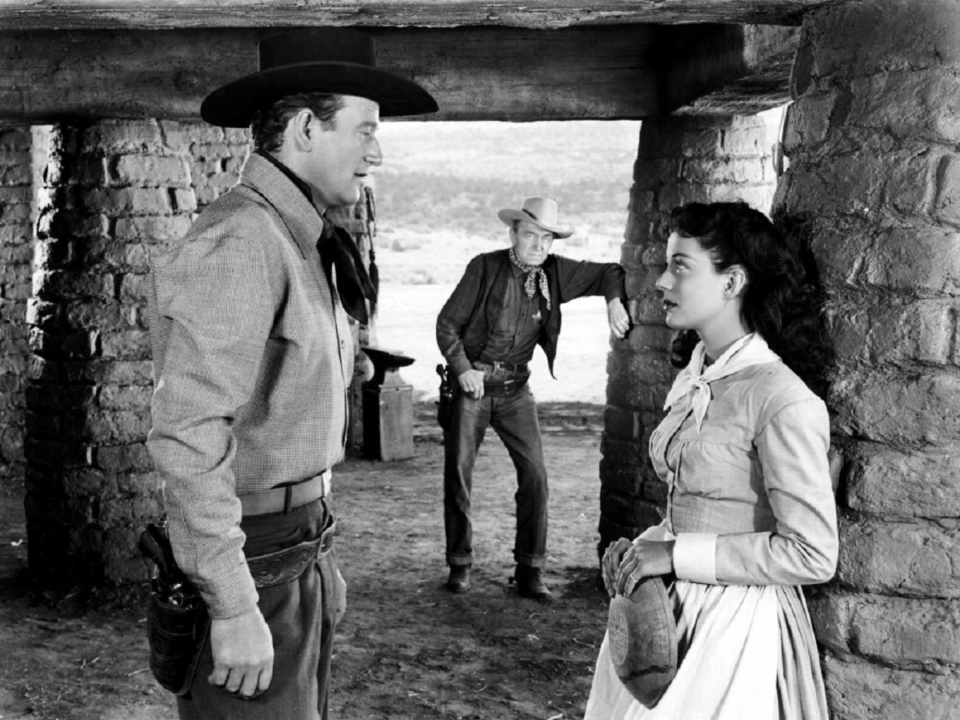Westerns have been featured on My Favorite Movies™ many times, so today’s film making the cut despite being a fairly minor John Wayne western should be no real surprise. The fact that it’s about a bunch of Pennsylvania Quakers convincing Duke to give up his guns and go legit is maybe a bit more surprising. Still, I’ve got a soft spot for Pacifist westerns, and this is one of the great ones, a throwback B-movie that even in 1947 seemed a relic of an earlier time. It helps that the movie largely eschews simplistic moralizing while reconciling the violence inherent in the mythological old west with the new life being presented to John Wayne.
Despite being the titular “badman,” Wayne’s Quirt Evans is still largely a paragon of gunslinger virtue. Sure, he’s a whoring gambler with a long list of bodies, but they were all shot honorably, and most importantly, his current bloody path is simple revenge as he seeks out the men who killed his father figure. Gail Russell’s “angel” is that rare well-rounded female character, who might be the angel on Quirt’s shoulder, but is also a fully functioning human being whose motivations feel realistic and lived-in rather than a mouthpiece for simplistic moralizing. She’s also absolutely stunning and had great chemistry with a still somewhat young Wayne (not something that you can say about all of his female costars).
It’s a realistic road to peace for Quirt–slowly seeing there are other ways, until a final return to his old life reveals how hollow it all is after his exposure to a better way. Unfortunately, there are still men who need killing out there, and thus we come to the conundrum at the end of every pacifist western: how to resolve the desire for peace in the face of men who know only violence.
In The Angel and the Badman, unlike just about every other pacifist western, Quirt does not simply “shoot it out one last time.” He turns around and faces the violence completely unarmed while Harry Carey’s hangman sheriff shoots the bad guys for him (thankfully). It might feel like a cop-out ending, but in a sense, Quirt accepted his fate as a man of violence for whom there was no redemption possible beyond dying by the sword with which he lived. Thus, the deus ex machina sherif saving him feels earned rather than cheap. By accepting his fate, Quirt was finally worthy of his reprieve–and his new life of peace with his spectacularly hot new Quaker girlfriend.


Leave A Reply